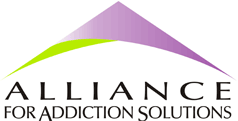Amino Acid Therapy and Key Recovery Supplements and Nutraceuticals for Addiction Treatment
- Alliance for Addiction Solutions

- Jan 28, 2020
- 3 min read

Most addicts are significantly depleted in many nutrients and benefit from supplementation with vitamins, minerals, and fatty acids. The most crucial nutrients for early recovery, however, are amino acids. Some of the key supplements used in a nutrition-based treatment program include the following:
L-Glutamine: L-Glutamine is a perfect fuel for the whole brain, balancing blood sugar levels to maintain energy and clear thinking. BloodAdd some more info about this item... sugar deficiency symptoms: irritability, shakiness, weakness, dizziness, especially if too many hours have passed since the previous meal. Symptoms of deficiency may include cravings for whatever gives quick relief to low blood sugar, like sweets, starches, and alcohol.NOTE: Be cautious about taking L-glutamine if you have manic depression (bipolar disorder). While low doses of L-glutamine may relieve bipolar depression, in approximately 50% of bipolar cases normal doses of L-glutamine can trigger mania.
DLPA:D-Phenylalanine (fee nil al a neen) extends the life of pain-relieving chemicals called endorphins. (L-phenylalanine is a form that stimulates the nervous system). D-phenylalanine is a powerful pain reliever without being a stimulant. It is available online. Most health food stores sell a mixed form called DL-Phenylalanine. Symptoms of Endorphin deficiency may include: crying easily even over commercials on television, chronic pain, emotional fragility, particularly sensitive to pain. Use of Prescribed pain relievers like Vicodin. Symptoms of deficiency may also include cravings for: Numbing foods like sweets and starches, uses substances like nicotine, marijuana, heroin, or alcohol to numb feelings.D-Phenylalanine (fee nil al a neen) extends the life of pain-relieving chemicals called endorphins. (L-phenylalanine is a form that stimulates the nervous system). D-phenylalanine is a powerful pain reliever without being a stimulant. It is available online. Most health food stores sell a mixed form called DL-Phenylalanine. Symptoms of Endorphin deficiency may include: crying easily even over commercials on television, chronic pain, emotional fragility, particularly sensitive to pain. Use of Prescribed pain relievers like Vicodin. Symptoms of deficiency may also include cravings for: Numbing foods like sweets and starches, uses substances like nicotine, marijuana, heroin, or alcohol to numb feelings.NOTE: Don’t take D- or DL-Phenylalanine if you have melanoma, Grave’s disease, or phenylketonuria (PKU). Be cautious about taking Phenylalanine if you have migraines, Hashimoto’s thyroiditis, high blood pressure, or manic depression (bipolar disorder).
L-Tryptophan and 5-HTP:(5-Hydroxy TryptoPhan) is used to manufacture serotonin, the brain’s natural antidepressant. Serotonin deficiency symptoms: depression, self-deprecation, irritability, panic, anxiety, compulsive thoughts and behaviors, suicidal thoughts and behaviors, sleep disorders, seasonal affective disorder, cravings worse in the afternoon or evening, sensitivity to heat, minimal sense of humor. Symptoms of deficiency may include cravings for sweets and starches; uses nicotine, marijuana, and alcohol for relaxing and comfort when stressed; Use of Prescribed SSRI drugs like Lexapro, Zoloft, Paxil, Prozac or SNRI drugs like Effexor or Cymbalta.
GABA: GABA is used to augment the neurotransmitter GABA (gamma amino butyric acid), the anti-stress chemical. GABA deficiency symptoms: anxiety, tension—emotional and physical—and feeling overwhelmed by stress. Symptoms of deficiency may include cravings for: carbohydrates, nicotine, marijuana, or alcohol to relax when stressed. Use of Prescribed tranquilizers like Valium, Neurontin, Xanax, and Ativan.
L-Tyrosine: L-Tyrosine (tie row seen) is used to manufacture catecholamines (cat a coal a meens) like dopamine, norepinephrine and epinephrine. These neurotransmitters cause us to wake up in the morning alert and refreshed with a clear mind, able to concentrate and focus on our goals. Symptoms of Catecholamine deficiency may include: fatigue, unfocused, lack of motivation, depression, apathy, feeling of boredom but no energy to do anything more interesting, possibly diagnosed as “attention deficit disorder” (ADD). Use of Prescribed Ritalin, Wellbutrin, or Adderall. Symptoms of deficiency may also include cravings for: whatever will ramp up the nervous system; sweets and starches for the quick rise in blood sugar and temporary stimulation, brain stimulants like caffeine or aspartame, and stimulating drugs like methamphetamine and cocaine; May also use tobacco, marijuana, opiates, or alcohol as stimulants; chooses risky sports and activities such as gambling or unsafe sex to raise catecholamine levels to feel more alive.NOTE: Don’t take L-tyrosine if you have had melanoma, Grave’s Disease, or phenylketonuria (PKU). Be cautious about taking L-tyrosine if you have migraines, Hashimoto’s Thyroiditis, high blood pressure, or manic depression (bipolar disorder).








































Comments